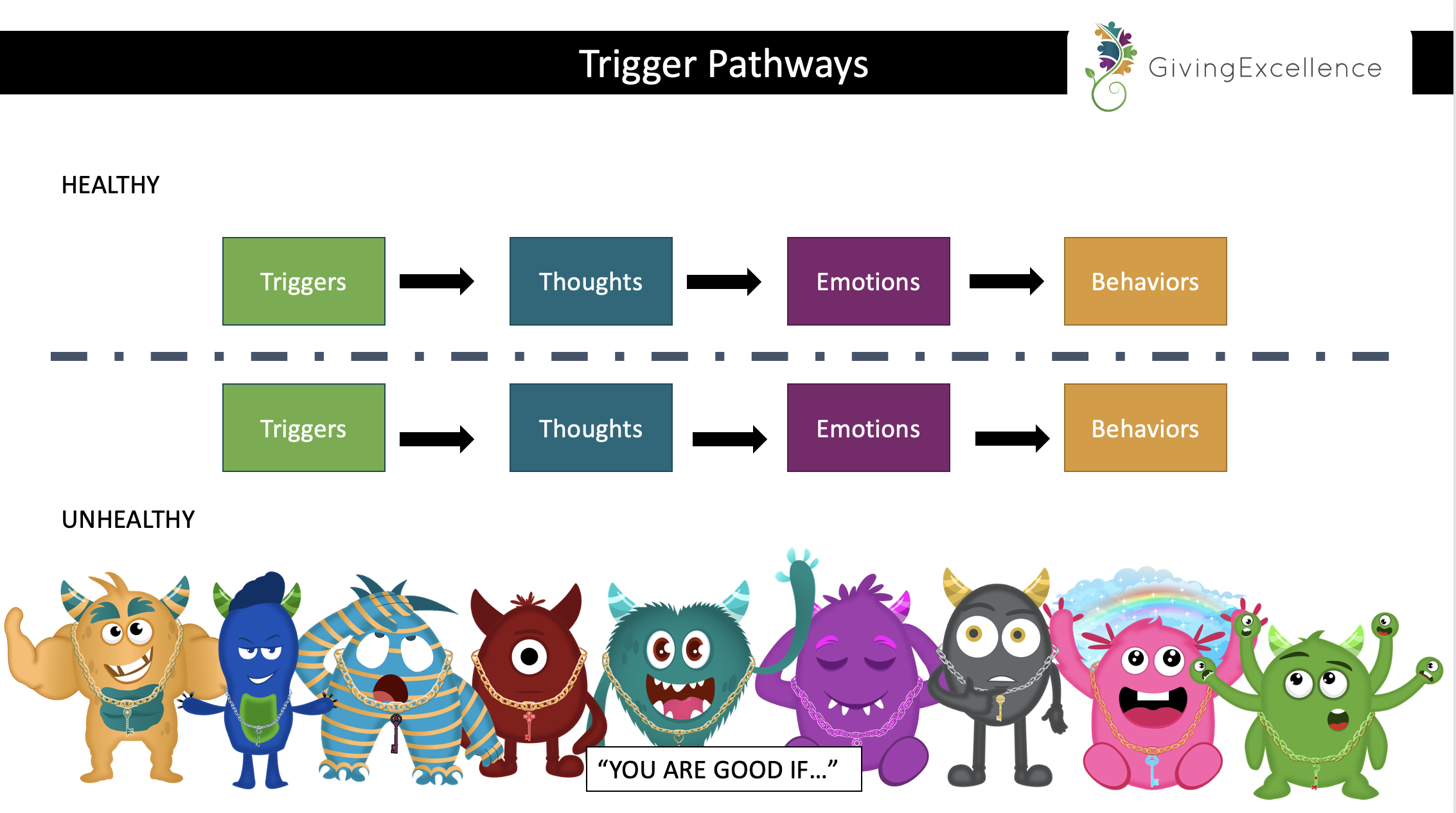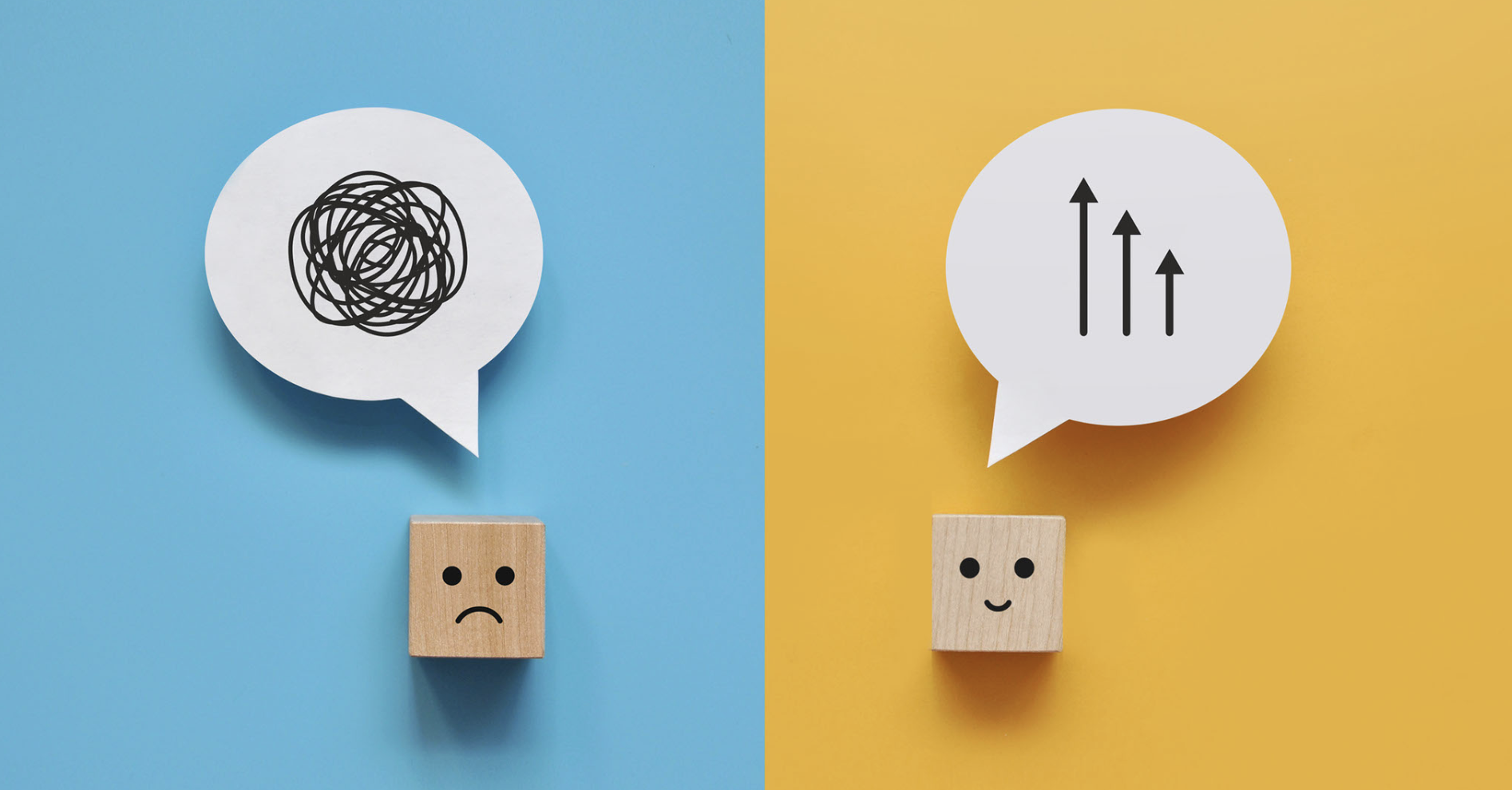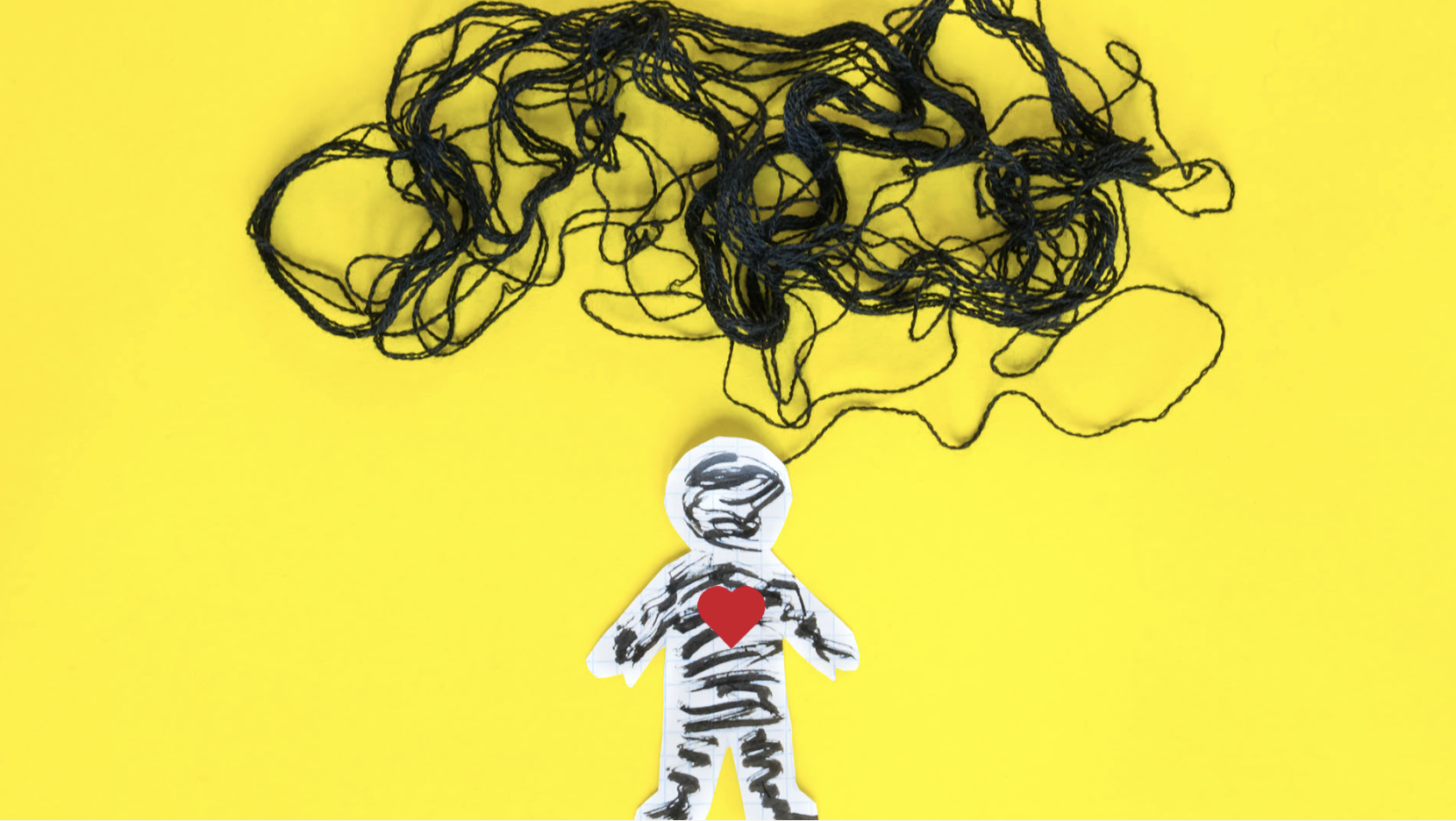How do you handle stress? Is this something that you even thought about? How do you behave when you become stressed?
Stress can really take a toll on our mental, emotional, and physical well-being, and how we handle it becomes crucial to maintaining a healthy and balanced life. There is no one-size-fits-all approach to dealing with stress. That’s why it is crucial to cultivate self-awareness to know how to properly manage it.
In this part of the series, I am going to walk you through your trigger pathways and how self-awareness helps us recognize when we are engaged in the process.
Recognizing your trigger pathway is essential for managing emotions and improving self-awareness. By identifying the situations or events that trigger certain emotions, you can learn to anticipate these triggers and develop coping mechanisms that help you manage them better. It is important to remember that recognizing triggers takes time and practice.
You may need to experiment with different techniques before finding the ones that work best for you. This process requires patience, perseverance, and most importantly, self-compassion.
Have you read the previous part of this series? If you haven’t already, you might want to check out The Structure of Interpretation: The Path to Self-Awareness with Mellissa Rempfer.
Now, let’s dive into the heart of the matter.
What is a Trigger Pathway, and Why it is Important
Explaining the Trigger Pathway
It all starts with triggers.
Triggers are events, circumstances, or cues that elicit a particular reaction. These, then, evoke thoughts or cognitive interpretations about the meaning and significance of the triggering event.
Our thoughts are our cognitive processes that occur in response to triggers, and these lead to the emergence of emotions. How we interpret things can elicit a wide range of emotional responses.
Our emotions are the feelings we feel like happiness, sadness, anger, fear, etc. Our emotions can be intense or subtle, and this, of course, impacts our behavior and well-being.
Let’s say for example, if we interpret something as scary, we exhibit behaviors like avoidance responses. Basically, our behaviors can be adaptive or not, helpful or not, and can cause consequences that influence our thoughts and emotions.
So, if we look at the model as a bigger picture, we can interpret the Trigger Pathway like this: triggers that activate our thoughts that generate specific emotions. These emotions can influence our behaviors and responses.
To explain the trigger pathway a little better, here are a few examples.
You were asked to speak in front of a crowd. This is your trigger. And then you think to yourself “I’m not good at public speaking. I might forget what to say and be embarrassed.” This will lead to you feeling anxious and scared. These emotions will lead you to avoid the opportunity and experience physical symptoms of anxiety.
So, if we look at the model as a bigger picture, we can interpret the Trigger Pathway like this: triggers that activate our thoughts that generate specific emotions. These emotions can influence our behaviors and responses.
To explain the trigger pathway a little better, here are a few examples.
You were asked to speak in front of a crowd. This is your trigger. And then you think to yourself “I’m not good at public speaking. I might forget what to say and be embarrassed.” This will lead to you feeling anxious and scared. These emotions will lead you to avoid the opportunity and experience physical symptoms of anxiety.
Another one is when you receive feedback from a supervisor or colleague that highlights areas for improvement. This is your trigger. And then your thoughts will be like, “I can’t believe they said that about my work. I must be a failure.” These thoughts will lead to the emotions of defensiveness, frustration, and disappointment. And these emotions will lead to the behaviors of becoming defensive or argumentative, avoiding future feedback, and experiencing decreased motivation or productivity.
Of course, the trigger pathway does not only apply to unhealthy situations.
Here’s a healthy example.
You applied for your dream job and passed for an initial interview. So, your trigger is going to be attending a job interview for your desired position. Your thoughts are, “I’m qualified for this job, and I have relevant experience.” These thoughts will lead you to feel confident and excited. This will then lead you to present yourself professionally, answer questions articulately, and showcase the relevant skills and accomplishments.
Importance of Recognizing Trigger Pathways
Recognizing trigger pathways is vital because it helps us understand how certain events or situations impact our behavior in healthy and unhealthy ways. This knowledge enables us to identify specific triggers that lead us down an unproductive path so that we can create strategies for avoiding those situations altogether.
Additionally, recognizing trigger pathways provides insight into why we respond emotionally in some instances, but not in others.
This insight empowers us by allowing us greater control over our emotional responses. By identifying our trigger pathways, we can manage our emotions better and avoid emotional outbursts or other unhealthy behaviors that may damage personal or professional relationships.
Being Self-Aware
Self-awareness involves understanding one's emotions, thoughts, and behaviors, as well as how these elements influence one's interactions with others. Being self-aware means recognizing your strengths and weaknesses, understanding your values and beliefs, and knowing what motivates you.
Self-awareness is not only important for personal growth but also in professional contexts. Employees who are more self-aware tend to be more productive, better communicators, and make more effective decisions.
Furthermore, being self-aware enables individuals to manage their emotions effectively which contributes to better stress management. One critical aspect of being self-aware is recognizing trigger pathways.
Self-awareness also includes an understanding of how our actions impact the people around us. This consideration extends beyond personal relationships into all areas where we interact with others such as work environments or social situations.
It can have a profound impact on our emotional regulation and stress management too. When we become more aware of our thoughts, feelings, and behaviors, we gain a better understanding of what triggers our stress response. This awareness allows us to identify and manage our stressors more effectively.
Furthermore, when we are more aware of how we react to stressors, it’s going to help us have a healthier mindset, emotions, and behaviors. We can take proactive steps to manage them before they escalate into more significant problems.
For example, if you notice that deadlines at work tend to trigger your stress response, you might plan your tasks more efficiently or delegate some responsibilities to reduce your workload.
Make sure to look out for the next part of this articles series, The Enneagram: A Tool for Self-Awareness and Self-Discovery. This awareness system helps people discover their motivations, behaviors, and can put the Trigger Pathways into a practical resource for how we cope with stress and desires. It is a tool and a map for self-awareness and deep personal growth transformation. That’s something you do NOT want to miss!
The Impact of Trigger Pathways on Our Thoughts, Emotions, and Behaviors
The impact of trigger pathways on our thoughts, emotions, and behaviors can be significant. When we’re triggered, our bodies release hormones such as cortisol and adrenaline which prepare us for fight or flight responses. Our heart rate increases, breathing becomes faster, and our muscles tense up.
This response is natural when faced with dangerous situations but can have unhealthy effects when activated repeatedly due to triggers such as stress from work or personal relationships.
Unmanaged triggers can lead to anger outbursts, anxiety attacks, depression episodes, and phobias development among other unhealthy outcomes affecting relationships at home or work as well as mental health status deteriorating over time.
Understanding Trigger Pathways are an important part of being self-aware because these subconscious reactions can often dictate our behavior, cognitive, and emotional responses.
By recognizing trigger pathways, we can begin to manage our responses and take control of how we react in certain situations.
Recognizing Where You Are In The Process
You can only recognize where you are in the process when you are self-aware. This means that you get to catch yourself in the act. Instead of only knowing that you reacted a certain way, you get to observe yourself in the current moment, and this brings to light what is currently happening.
Sometimes, this happens after the response has already happened and you notice your response where you self-reflect on what you did, feel, or think (self-reflection).
Being self-aware means being able to look back and recognize what triggered you, what you thought about at that moment, the emotions it caused you, and how you behaved.
Let me elaborate a little more…
If you have self-awareness, you will be able to identify what triggered you and can eventually develop strategies that will manage your responses and make conscious choices than reacting automatically.
And when you are aware of your thoughts, you can challenge unhelpful thinking patterns and cultivate more constructive and positive mental frameworks.
By becoming aware of the emotions you have, you get to gain insight into your emotional state and how they impact your behaviors. This will then help you to respond to your emotions in a healthy and adaptive manner rather than being overwhelmed or controlled by your emotions.
Now, when you can identify the behaviors that you have as a result of your thoughts and emotions, you can gain insight into your habits, tendencies, strengths, and areas for improvement.
Understanding the relationship between your thoughts, emotions, and behaviors enable you to make conscious choices, align your actions with your values, and modify your behaviors that no longer serve you.
Are you interested in getting to know which part of us regulates to be a certain way? This part of us aids in reinforcing this response process.
Don’t forget to come back next week to know what the Enneagram is and why learning what your unique pathway looks like can help you understand how you are triggered and motivated!
Start your Self-Awareness Journey with me!
The only way to become the better version of yourself is to become self-aware. And I am here to be your partner-to-be in your journey.
If you want to personally book a session with me to unleash your true potential, you can check out Unstoppable You: Being Your Best Self.
It’s time to navigate your life with clarity and authenticity! Stay compassionate and curious!

Mellissa Rempfer, MA.ed AET, P.C.C. Enneagram Coach
Mellissa Rempfer helps people on their paths to success get out of their own way by finding the best in themselves and others. Mellissa has taught, coached, and lead workshops around the world for over 20 years, all the while constantly asking “what is needed for the person before me to grow and develop?” Mellissa’s need to answer that question is a personal one given the challenges her own life has surrounded her with, from homelessness in high school to a long and continuing struggle with medical issues, and many more lessons in resilience in-between. Mellissa’s credentials and certifications to support her work in human growth and transformation include: Master’s Degree in Adult Education in Training and Development, Professional Certified Integral Coach, Certified Enneagram Teacher, and Authorized Workshop Facilitator with the Enneagram Institute. Mellissa can be often be found talking with strangers, watching The Great British Bake Off, or being a fully present dog mom to her Zöe.




